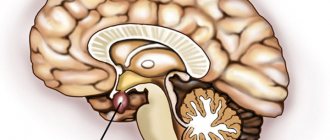One of the most interesting facts is that when a person comes face to face with any other person, his pupils dilate, just like when he sees nothing.
In a normal state, the pupils change their shape depending on the illumination, the focusing of the gaze, and according to some physiological indications. But if the pupils have been dilated for a long time, you should understand the reason for this in order to avoid future health problems, since they can become a signal of some serious illness.
Why do pupils dilate?
Although any abnormality in our physiological state is perceived as a sign of disease, dilated pupils do not necessarily indicate this. According to scientific research, dilated pupils can indicate a person’s good mood or excited state. The pupils also dilate in response to light.
During times of stress or simply a bad mood, the pupils are in a constricted state, and as soon as a person begins to experience positive emotions, his pupils immediately begin to dilate. A woman’s pupils become dilated as soon as she begins to communicate with a man who is truly interesting to her. This is simply a physiological reaction of the body.
Why are the pupils dilated? Delivery of contact lenses and glasses in Moscow and Russia
Our pupils tend to dilate and contract. The most common reason for this phenomenon is their reaction to changes in light levels. There are other natural factors. But sometimes one or two pupils in a person have a permanently enlarged size. Why might this happen? Let's look at the possible reasons.
Physiology of natural pupil dilation
The pupil changes its size due to contractions of the circular and radial muscles. The radial one is responsible for its expansion, and the circular one is responsible for its narrowing. During the day, our pupils constantly change in size for various natural reasons:
- Reaction to light. The pupils dilate in dim light and constrict in bright light. This can be observed if you look into a mirror in a dimly lit room and then turn on a bright light. You will see the pupils shrink. From the outside, this is noticeable in domestic animals, for example, cats. In the morning, their pupils look like narrow stripes, while in the evening they expand to almost the entire eye. The fact is that light passes through the pupil. In bright light or under the sun, it narrows to let in less light and protect nerve cells. When it's dark, your eyes need more light to see better, so your pupils begin to dilate.
- Expression of feelings. When looking at a person for whom we feel love and attraction, the pupils may also enlarge. Scientists have found that this often happens in women when they look at their child, and in men - when they see a naked woman. Interestingly, a person with enlarged pupils seems more visually attractive to the opposite sex. Psychologists recommend making dates in rooms with dim lighting or choosing evening walks in order to increase interest in yourself. An experiment was conducted: men were shown two groups of photographs of one woman. In the second photo, her pupils were slightly enlarged using Photoshop. The men unanimously admitted that she was much more attractive in these photographs. The same result was found when women were shown photos of men with normal and enlarged pupils.
- Emotional condition. The pupils may dilate sharply if a person experiences severe fear, or, conversely, sudden joy, delight, and also excitement. At the same time, they can even increase four times.
- Reaction to eye drops. To carry out some ophthalmological examinations, special mydriatic drops (Irifrin, Atropine and others) are dripped into the eyes, dilating the pupil. After their use, this effect can last up to three days. This phenomenon can also occur when using regular eye irritation drops (Vizin and others).
Severely dilated pupils: medical reasons
There are many known reasons that can cause pathological mydriasis:
- aortic aneurysm;
- damage to the optic nerve;
- tumor in the brain;
- increased intraocular pressure;
- frequent migraines;
- diabetes;
- traumatic brain injury;
- encephalitis, meningitis;
- poisoning with any product or substance;
- epilepsy;
- intracranial bleeding.
If a person’s pupils are constantly dilated, this indicates that he has some kind of pathology. The pupils also enlarge after taking psychotropic, narcotic drugs and alcohol.
Thus, dilated pupils in a teenager may indicate that he is secretly using some kind of drugs. If you have pathological mydriasis, you must visit a doctor to determine the true cause of this phenomenon.
Adey-Holmes syndrome: loss of pupillary response to light
This is the name for a condition where the pupils lose the ability to respond to light due to paralysis of the eye muscles. As a rule, the syndrome is characterized by unilateral mydriasis. It is observed much more often in women after 30 years.
The main symptom of this disease is one dilated pupil, and its diameter can have different sizes.
When a person with Eydie-Holmes syndrome looks at something close, his affected pupil very slowly narrows, and when convergence stops (reducing the visual axes to the center to look at objects located close) it immediately expands. Here are several factors that may indicate the presence of this pathology:
1. Sharp deterioration of vision.2. Weak reaction of the pupils to light or its complete absence.
3. The pupil enlarges in one eye.
If such signs appear, you should visit an ophthalmologist to have it checked. Surgery may be required to restore vision. But it will be impossible to return the normal functioning of the eye muscles: such changes of a functional and neuromuscular nature are irreversible.
Why might teenagers have dilated pupils?
Parents should pay attention to the diameter of their child’s pupils, especially if they are teenagers. At this difficult age, he may begin to use drugs, naturally, hiding it from his parents. This is why dilated pupils can be a warning sign.
Drug use, unlike alcohol or cigarettes, is not easy to recognize. In addition to dilated pupils, there are other signs that a child is taking illegal substances:
- increased excitability or, conversely, complete indifference to everything that happens;
- insomnia;
- increased thirst;
- sudden mood swings for no reason;
- weight loss, circles under the eyes, unhealthy appearance.
If such symptoms appear, you need to consult a specialist and, under any pretext, take tests from the child to examine the blood and urine for the presence of certain substances.
Dilated pupils in a child
Parents should be attentive and pay attention to the condition of the child’s pupils. Due to his age, he may not be able to formulate the symptoms that bother him, and there can be many reasons for dilated pupils in childhood.
One of the most common is the presence of helminths. Children have them quite often, but the child will not always talk about how he feels. Helminthiasis requires timely treatment, since the presence of parasites in the body threatens overall health. With this disease, the pupils of the child's eyes are constantly dilated.
Poor lighting may also be a cause. If children spend a lot of time in a poorly lit room on a computer or gadget without turning on bright lights, their pupils will be constantly dilated. The eyes have simply adapted to the current conditions, but with good lighting they will return to normal.
A child’s pupils may be dilated due to an altered psycho-emotional state: fear, irritation, excitement. He may have problems at school, but he hides them.
Children run a lot, climb trees and often fall. A child can get a concussion without noticing the symptoms. Enlarged pupils along with nausea and headache are a sign of a concussion.
Let us add that dilated pupils in a child can also be a sign of other pathologies: for example, they enlarge with an increase in temperature, the presence of infectious diseases, poisoning, metabolic disorders, epilepsy or a brain tumor, hyperfunction of the thyroid gland. The child himself is not able to monitor the health of his eyes, so parents need to be careful.
The contraction and dilation of the pupils dozens of times during the day is a normal physiological phenomenon that occurs completely unnoticed by others. However, if the pupils are constantly enlarged, this is evidence that something is wrong with the body.
Diagnostics
To make a diagnosis, the specialist must obtain as complete an anamnesis as possible. He will find out what events happened before this, ask about the patient’s lifestyle, past illnesses, and how long mydriasis has been observed.
Sometimes an examination by several doctors is required: a neurologist, an ophthalmologist, a neurosurgeon. In addition, a blood test and magnetic resonance imaging are required, which will determine whether there are tumors inside the head. Only a thorough medical history will help a specialist establish the true cause of pathological mydriasis.
Source: https://www.ochkov.net/informaciya/stati/pochemu-rashirny-zrachki.htm
Dilated pupils: standard reaction to light
The human body is designed in such a way that it is configured to preserve the retina and protect it from ultraviolet radiation and various damage. A person perceives more than 80% of information from the surrounding world through vision. In very bright sun or strong artificial lighting, the pupil constricts. But when the room is twilight, the pupils immediately begin to dilate. This comes from the need to provide a clear vision.
When it is dark, it is quite difficult for a person to see the surrounding environment, so the eye muscles begin to focus and the eyeball becomes wider. In the dark, the pupil dilates to 9 mm, having a normal diameter of 3 mm.
Pupil functions
In this article
The pupil is located in the center of the iris of the eye, and its size can vary depending on lighting conditions. Its main function is to protect the retina from large amounts of light rays. Therefore, in bright light the pupil contracts, and in dim light it dilates. The constriction of the pupil is reflexive - a person does not need to think for any action to occur with the pupil.
The size of a person’s pupil depends on the individual characteristics of the optical system of the eye. People with large eyes tend to have large pupils. It is important that they are the same size and can reflexively respond to changes in light levels. If one eye has a larger pupil than the other, this indicates that changes have occurred in the visual system. Which ones?
Dilated pupils: psychological reasons
When too much adrenaline enters the body during an attack of anger and aggression, the pupils instantly become dilated. This state of the pupils indicates that the nervous system directly affects the pupils. When strong emotions arise, such as fear, pain or extreme events, the body reacts immediately by dilating the pupils.
While performing some important work with full concentration on its result, a person’s pupils also dilate.
Natural mydriasis of the eye and its causes
However, in some cases, mydriasis is a natural and harmless phenomenon. The most common thing is that the pupil will dilate at dusk or in a dark room. Here the pupils of both eyes are dilated evenly and when going into bright light they narrow again. In addition, there are a number of other factors in a person’s life when the pupils will be dilated for natural reasons. So,
- strong emotions: pain, joy, surprise will cause dilation of the pupils. In this case, the degree of expansion will depend on how strong the emotions are;
- our pupils dilate when we are strongly interested in something or someone. Thus, looking at an object of love (or sexual desire) will cause dilation of the pupils;
- dilation of the pupils will also cause a very good mood; it is provoked by the release of adrenaline.
Most often, the natural dilation of the pupils is symmetrical and short-lived. After which the pupils of the eyes return to normal. In this case, there is no harm to the human eye.
Causes of dilated pupils: diseases
The reasons for the appearance of dilated pupils can be symptoms that signal the appearance of health problems. Usually this is a head injury or some pathologies of the thyroid gland. If, in addition to dilated pupils, any other symptoms of deterioration in health begin to appear, such as high blood pressure, headaches, vomiting and nausea, you should immediately seek help from a doctor. Only a specialist will be able to determine the real cause of these symptoms and prescribe appropriate treatment.
Some medications can cause dilated pupils . One of them is the drug "Atropine", which is prescribed for the treatment of various diseases, especially for patients with problems with the gastrointestinal tract. The use of other eye drops containing tropicamide often causes dilated pupils. Temporary dilation of the pupils may be caused by a disorder of the central nervous system, such as stroke or epilepsy.
If the eyes or head are injured, the eye muscle, which is responsible for the proper functioning of the pupil, could be damaged. In these cases, the process of contraction and expansion is disrupted. The causes of dilated pupils are also excessive consumption of alcohol, taking narcotic substances, and psychotropic pills. If the causes of dilated pupils are precisely these, then it is necessary to immediately begin treatment: both physical and psychological.
Pathological causes of wide pupils
Double-sided with reaction to light
Bilateral dilation of the pupils when reacting to darkness is the norm, but to light is a disease. However, this condition can also indicate many pathological conditions. It is important to recognize other symptoms promptly and seek medical help.
Bilateral mydriasis with a reaction to light occurs in the following diseases:
- Drugs and psychotropic drugs. Some substances of a number of amphetamines can lead to this symptom. This is associated with the release of adrenaline into the blood.
- Alcohol abuse. Alcoholic drinks also lead to bilateral mydriasis with a reaction to a light stimulus. Ethyl alcohol dilates blood vessels, which leads to minor hemorrhages in the eye. Alcohol intoxication is reflected by dry eyes and redness of the mucous membranes. The condition returns to normal after 1–2 days.
- TBI. Enlarged pupils due to traumatic brain injury appear when the tissues of the main organ of the central nervous system are damaged. This indicates a serious injury, which is characterized by loss of consciousness, inappropriate behavior, and involuntary eye movements.
- Inflammation. In some people, large pupils indicate inflammatory processes in the optical system. This is not a typical sign of diseases of this nature and is found extremely rarely. More often indicates inflammation of the brain.
- Preeclampsia. The condition appears in the last trimester of pregnancy. Wide pupils indicate changes in a woman's hormonal system. When preeclampsia reaches a severe stage, cephalgia, foggy consciousness, and hypoxia appear.
- Diabetes. Leads to diabetic retinopathy, which is formed due to changes in the blood vessels of the retina. Diabetes mellitus can also lead to hypoglycemic coma. In this condition, the patient breathes frequently, the pupils become dilated. From the outside, this is perceived as alcohol intoxication, since the gait is disturbed and the person gets lost in space.
- Brain tumors. Malignant and benign formations in the occipital part of the brain compress the path along which information travels from the retina to the brain. In this case, bilateral pupil dilation and the appearance of spots before the eyes are observed.
If the pupils dilate in response to light, they undergo a thorough diagnosis of the brain and visual analyzer. The cause may be an aneurysm, a tumor of a lymphatic vessel, or a contusion.
Bilateral without reaction to light
This sign indicates a serious condition of the patient. Immediate medical or surgical intervention is required.
Bilateral mydriasis without reaction to light occurs in the following cases:
- Drug poisoning. Severe poisoning with narcotic and psychotropic drugs leads to mydriasis on both sides, but the pupils do not respond to a light stimulus. The function of the central nervous system is depressed, blood pressure drops and seizures occur.
- Botulism. This is a dangerous infectious disease in which the infection penetrates through the gastrointestinal tract and damaged skin. It manifests itself in adults as muscle weakness throughout the body, including the optical system. Botulism is characterized by drooping eyelids, bilaterally dilated pupils without reaction to light, respiratory failure, and tremors in the extremities.
- Coma. In an unconscious state, a person does not respond to external stimuli. The patient cannot communicate with people around him. Bilateral immobility of the pupils and an increase in diameter indicates an overdose of atropine or scopolamine. If mydriasis is unilateral, they speak of paralysis of the 3rd cranial nerve.
Unilateral
Normally, both pupils of a person should dilate. If mydriasis is only on one side, this indicates a disease. Pathological causes indicated by unilateral mydriasis:
- Ciliary ganglionitis or Oppenheim syndrome. The pathological condition develops due to infectious and inflammatory diseases, tuberculosis, cystitis and cervical lymphadenitis. These are just some of the reasons leading to ciliary ganglionitis. When sympathetic fibers are excited, mydriasis occurs. The disease manifests itself as vegetative pain in the eyeball and behind it. The pain radiates to the temporal and frontal lobes.
- Migraine. Characterized by unilateral cephalalgia. Mydriasis occurs on the same side where the headache occurs. Associated symptoms are dizziness, nausea, vomiting, pulsation in the temporal or frontal lobe from the affected area.
- Adey-Holmes syndrome. The disease is caused by damage to the cellular structures of shortened ciliary nerves. The pathology is manifested by increased sensitivity to light, blurred vision, impaired tendon reflexes and a complete lack of reaction to light in one pupil.
- Oculomotor nerve palsy. This nerve plays an important role in eye movement. It innervates the pupillary sphincter and the ciliary muscle. With his paralysis, most motor functions are lost. The pupillary response is sometimes preserved, and sometimes greatly weakened.
Unilateral mydriasis always indicates the presence of a disease. Normally, the pupils dilate simultaneously on both sides.
Chronic dilated pupils: causes
The causes of chronic dilation of the pupils are partial damage to the optic nerves, which have lost the ability to respond correctly to light. People with this disease feel pain when the light is too bright. In the dark they have problems with vision. Due to their impaired ability to see clearly at night, they must be especially careful when moving around in the dark.
In addition to natural causes of dilated pupils, unfortunately, emerging health problems can also be the cause. Therefore, if you notice that your pupils remain dilated for a long time, immediately consult a doctor for help, do not self-medicate. But still, in most cases, the causes of dilated pupils are certain human characteristics and the body’s natural reaction to the environment and current events.
Especially for LadySpecial.ru - Julia
Incredible glow
You've probably heard the expression "glowing with happiness." It has a certain meaning and justification. When a person is in love or simply happy, he literally emits bright light and characteristic energy. Its pores expand, and this allows the skin to secrete more oil, which shines and shimmers. Due to increased blood circulation, the cheeks become rosy. Therefore, you should pay attention to the person who is standing or sitting in front of you. If, with your appearance, he begins to glow with surging feelings, it means that you are at least interested in him. And if this happens to you, don’t be shy and take action. You have taken into account all the necessary signs, so you can consider yourself an expert in this field. Your vibes will definitely not leave your chosen one indifferent.
Found a violation? Report content











